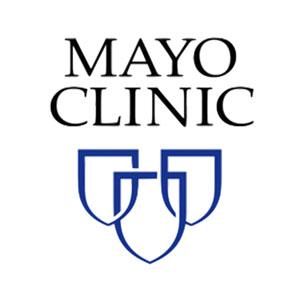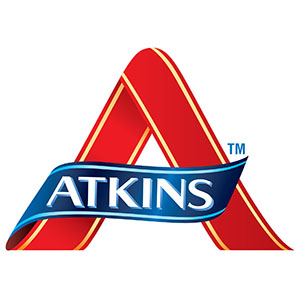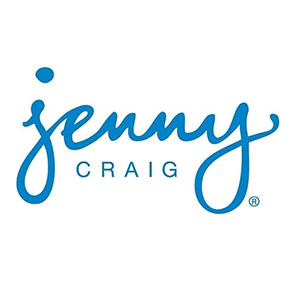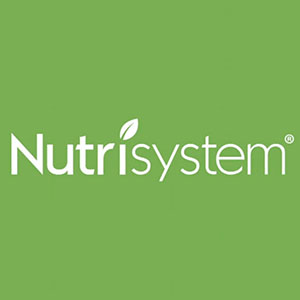Weight loss programs provide the structure many people need to achieve their weight loss goals.
Today’s best weight loss programs are easy to join, can be customized to fit your needs, and do not require a large upfront financial commitment.
With so many Americans struggling to control their weight, these programs are more important than ever.
But as with any other product, some weight loss programs are worth the investment, and some are not.
Our team of experts has determined that the following represent the best weight loss programs of 2021.
Rankings
1. Mayo Clinic Diet Program

The Mayo Clinic is perhaps best known for operating the top-ranked hospital in the US. But the experts at the Mayo Clinic also know a thing or two about weight loss and put their expertise to work in the form of the Mayo Clinic Diet Program.
What we like: The Mayo Clinic Diet Program puts as much emphasis on life after weight loss as it does on losing the weight. And that is key since most people regain the weight they lose because they are not prepared to go it alone.
Flaws: Some of their motivational tips are pretty trite. Though it does not detract from the overall excellence of the program.
2. Weight Watchers

Weight Watchers was started in 1963 by New York City homemaker Jean Nidetch who envisioned a support network for people trying to lose weight. Over the years, it blossomed into a worldwide phenomenon and is today a publicly traded corporation worth billions of dollars.
What we like: Weight Watchers provides three levels of engagement. Members can interact online, pay a bit extra for a personal coach, or interact via in-person meetings. The number of choices increases the odds of lasting weight loss success.
Flaws: WW requires food tracking, which can become tedious. Also, the program may not be strict enough for some.
3. Atkins Diet

The Atkins Diet was one of the earliest and most successful commercial diet programs to leverage the low-carb principles of the keto diet. The program is named for its founder, Dr. Robert Atkins, and uses multi-phase approach.
What we like: Early on program members are required to dramatically reduce their carb intake. As they move through later phases, however, some of the restrictions are lifted, and an emphasis is placed on developing healthy habits.
Flaws: Drastically reducing carb intake is easier said than done, since most everyone’s favorite foods are carb-heavy.
4. Jenny Craig

Of the weight loss programs that provide some type of prepared foods, the Jenny Craig program is probably the most comprehensive. The company provides literally everything you are supposed to eat as you work your way toward your weight loss goal.
What we like: There is little doubt that, if you practice the program as designed and eat only what you are given, you will lose weight. The meals they provide are often quite tasty and you are provided a personal counselor to help you.
Flaws: Not exactly cheap. And the program forbids you from eating out.
5. Dr. Fuhrman Nutritarian Diet

The Nutritarian Diet was devised by Dr. Joel Fuhrman, who believes people do not need to count calories if they eat the right foods. This is not really a revolutionary idea (ask your vegetarian friends), but Fuhrman has managed to turn it into a viable weight loss program.
What we like: The Nutritarian Diet frees you from calorie counting. You are allowed unlimited veggies, legumes, and fresh fruit. To top it off, you are allowed a small amount of cooked starchy vegetables like potatoes each day and avocados, nuts, and seeds.
Flaws: No meat on the Nutritarian Diet. None.
6. The SlimFast Diet Plan

People on the go seldom have time for calorie counting, and are seldom home to receive and prepare pre-cooked meals sent by a weight loss program. Yet many of them still need to lose weight. Enter the SlimFast Diet Plan.
What we like: The SlimFast diet does not require you to join anything or spend time tracking the food you eat. The shakes and SlimFast snack bars are easy to use and easy to carry around with you. There are also scores of healthy meal recipes available on the website.
Flaws: The downside is that you are confined to the same shakes day after day.
7. The Zone Diet

Zone Diet creator Barry Sears takes a slightly different approach to food. To him, food is like a maintenance drug, and the important thing is to take just the right dose in order to stay in the correct nutritional zone.
What we like: The Zone Diet does not limit what foods you can eat or when. You can essentially eat whatever kind of food you want as long as you do not exceed 30% protein, 40% carbs, and 30% fats.
Flaws: As is the case with Weight Watchers, some will tire of having to track food and portions after a while.
8. The HMR Diet

The HMR Diet replaces your usual meals and snacks with a variety of premade snacks and full replacement meals. The diet also encourages people to augment the prepared foods they are given with fresh fruits and veggies.
What we like: The HMR Diet does more than just provide tasty prepared meals and allow you a bit of leeway with veggies and fruit. It also puts a strong emphasis on developing the type of habits you will need to keep the weight off once you lose it.
Flaws: At an average cost of about $100 per week for the replacement meals, it’s a budget-buster for some people.
9. Nutrisystem

Nutrisystem has been around for almost 50 years. They got their start selling healthy foods through brick and mortar storefronts. In 1999 they developed a full-service weight loss program and took their product online.
What we like: The Nutrisystem program revolves around a signature 4-week plan. You are provided healthy, low-cal, professionally prepared meals, and introduced to the basics of healthy eating and living.
Flaws: Some people have been known to stumble during the transition to cooking their own meals.
10. South Beach Diet

The South Beach section of Miami is the very definition of trendy. But the South Beach Diet is anything but. It leverages the sound science behind the low-carb keto diet but takes a less extreme approach.
What we like: The three phases of the South Beach Diet focus on 1) restricting caloric intake, 2) developing good habits, and 3) incorporating what you have learned into your daily life.
Flaws: Since this is a low carb diet, you may wind up suffering symptoms of the so-called ‘keto flu’.
Who Needs A Weight Loss Program?
Unfortunately, the answer to that question is, “More and more people every day”. The overweight epidemic sweeping much of the globe is unprecedented in human history. In the US alone, the CDC estimates that more than 70% of all adults are overweight or obese (1). That’s more than 140 million people.
Being overweight causes myriad health problems, including knee and hip problems caused by additional stress and strain on those joints, heart problems, and high blood pressure. The total cost to the US economy is estimated to be a staggering $1.7 trillion. That’s ‘trillion’ with a ‘t’.
Not everyone is taking the situation sitting down, however. Many overweight individuals are taking responsibility for their condition and seeking help from weight loss programs. Weight loss programs enable people to get the help they need to see their weight loss quest through to a successful conclusion.
How We Ranked
For a diet program to make our list, it needed to be more than a concept. By that we mean, it needed to be a complete program with easy to understand guidelines, dos and don’ts as far as food goes and either offer replacement meals or the equivalent, or provide a shopping list and a series of menus the member is expected to follow.
For that reason, something like the keto diet did not make our list. While it has spawned numerous high-profile offshoots, the low-carb keto diet itself is more concept than program. With the keto diet, you limit carbs to 30-50 grams per day while increasing your intake of healthy fats. How you do that is entirely up to you. As such, it is not a program and did not make our list.
We also gave preference to programs that imposed structure on the dieter, since it is often a lack of structure that causes people to stray from their weight loss goals. Some of the above weight loss programs are quite rigid, while others are a bit more easy-going. But all state that if you expect to succeed, you would do best to operate within the structure they provide.
In determining which weight loss programs provided the best chance of success, we leaned heavily on the scientific data used to support them, as well as on testimonials from actual members.
We understand that more than a few people who lose weight using these programs wind up putting the weight back on. But that does not detract from the fact they lost the weight to begin with. If they did not internalize new, healthy habits in order to keep the weight off, that is not necessarily the fault of the weight loss program.
FAQs
Q: What is a weight loss program?
A: A weight loss program is designed to provide people who want to lose weight with the structure they need to do so. These are for-profit programs that often provide not only structure and advice, but the low-calorie foods necessary to achieve weight loss. Some meal plans are more elaborate than others and some more restrictive than others. But the goal is always the same: to give you the tools to lose weight.
Q: How do I join a weight loss program?
A: In most cases, you can sign up for a membership through the program website. It only takes a few minutes. Those that require a membership fee will ask for payment when you sign up. With others that make their money by selling specialty food items, you will not have to pay anything until you order the first batch of shakes, snacks, or meals.
Q: Why should I use a weight loss program?
A: The most obvious reason to use a weight loss program is to lose weight for the sake of your overall health and wellbeing. If you are overweight, rest assured you are not alone. There is an obesity epidemic sweeping the developed world (2). It is primarily driven by our increasingly sedentary lifestyles and affinity for unhealthy food. Simply ignoring the short and long-term implications of being overweight will not lead anywhere good.
Q: How are weight loss programs different from normal dieting?
A: Weight loss programs typically provide a great deal of structure. The kind of structure usually missing when a person quietly decides to lose weight on their own. One of the reasons so many find it difficult to lose weight is because their attention wanders, and without even thinking about it, they find themselves reverting to old eating behavior. A weight loss program keeps the focus on weight loss right upfront.
Q: What is ‘food tracking’?
A: Food tracking involves writing down everything you eat. Tracking provides insight into eating habits that help dieting individuals lose weight. Some weight loss programs require members to track food. Others merely encourage it. Researchers believe taking things a step further and keeping a food journal (3) can be even more beneficial. With a food journal, a person tracks what they eat, when, why, who they eat with, and how they feel when eating.
Q: Do weight loss programs give people a better chance of losing weight?
A: It depends on the individual. Some can muster that willpower to go it alone and achieve lasting results. However, most people have a complex relationship with food, meaning willpower alone will not be enough. They need some type of structure they can invest in. Weight loss programs provide that structure. In most cases, they also provide the very food the dieting individual is supposed to eat. You cannot get much more structured than that.
Q: Which weight loss program is best?
A: We rank the Nutrisystem weight loss program as the best. But that does not necessarily mean it will work for everyone. If you travel a lot on business, you may decide that the SlimFast program, with its highly portable shakes and snack bars, is a better fit for you. Or perhaps you found the keto diet too restrictive but still like the idea of a low-carb diet. In that case, Atkins might be a good fit.
Q: Are there health risks associated with weight loss programs?
A: Unless you are losing a large amount of weight quickly, the health risks of commercial weight loss programs are minimal. Of course, it is always a good idea to discuss a weight loss program with your doctor before undertaking one. But for most overweight people, the greater risk is doing nothing (4). While there are exceptions, as a general rule, the biggest risk with a commercial weight loss program is that you may gain the weight back.
Q: Should men consider using a weight loss program?
A: Historically, women and men approach food and body weight differently (5). But those different outlooks do not negate the need for men to watch their weight too. In fact, statistics indicate weight reduction may be more important for men. That’s because heart failure is the number 1 cause of death for men in the US (6), and obesity puts incredible stress on the heart (7). The bottom line is that men who need to should absolutely consider a weight loss program.
Q: Do weight loss programs offer any kind of support?
A: Some, like Weight Watchers, are well-known for providing a support network for members. There are also many Atkins-related support groups. Some are affiliated with the company, while many others are independent. Those tend to be the exceptions rather than the rule, however. Most will offer advice or helpful tips on their website. But not much else. And with some weight loss programs, you are more or less on your own.
Q: Can I travel with replacement meals?
A: Most pre-packaged replacement meals associated with weight loss programs need to be frozen until you eat them. So you will not be able to bring them on a plane with you when you go on vacation. However, it is possible to take snack bars and such on a plane. And SlimFast insists that you can take their ready-made shakes with you as long as you put them in your checked luggage (8). We suspect, however, that this is easier said than done.
Q: Do weight loss programs work for older individuals?
A: Weight loss programs can work for older individuals. In fact, the same basic weight loss principles apply to older folks that apply to people in their 30s: cut out junk food, eat more veggies, drink water, and exercise. The exercise part is particularly important, because if you do not do something about it, you will lose muscle mass as you age (9). And that will just exacerbate any health issues.
Q: Are weight loss programs expensive?
A: The cost of weight loss programs varies considerably. In the case of SlimFast, the cost is almost entirely associated with buying their shakes and snacks (snacks are considered optional, however). With other programs, you need to commit to buying their prepackaged meals. And that can add up over time. A couple offer free versions of their programs. Although free versions usually don’t amount to much more than recipes.
Q: Is the ‘keto diet’ a weight loss program?
A: No, the keto diet (10) is not a commercial weight loss program. The keto diet was invented by doctors a century ago to help control hard-to-treat forms of epilepsy in adolescents. However, several highly popular commercial weight loss programs are based on the keto diet principle of carbohydrate restriction. Most notably, the Atkins Diet and the South Beach Diet, which restrict carb intake, but not to the same degree as the keto diet.
Q: What are the odds I will put any weight I lose back on?
A: Studies indicate that among people who lose moderate amounts of weight, more than half will regain the weight (11). According to the CDC, the most important factor in maintaining weight loss is exercise (12). So, if you want to help ensure that any weight you lose via a weight loss program stays off, make sure you incorporate exercise into your new healthy lifestyle.
Q: Does weight loss increase lifespan?
A: It is possible. Some studies seem to show a clear connection between obesity and premature death (13). But some researchers believe losing weight does not necessarily extend life. Mostly because obesity can cause damage to the body that cannot be undone simply by dieting. There is little argument, however, that losing weight will ensure that a person enjoys a higher quality of life, regardless of how many years they live.
Related Articles
Appetite suppressants
Weight loss pills
Keto shakes
Recap
A weight loss program can provide the structure, guidance, and even the food you need to achieve your weight loss goals.
Weight loss programs are easy to join, do not require a large financial commitment up front, and can be tailored to your individual needs.
Today’s best weight loss programs were developed by doctors and nutritionists and have millions of satisfied customers the world over.
Use the above information to decide which of our 10 best weight loss programs is right for you.
For cpoe.org’s #1 recommended weight loss program, click here.

